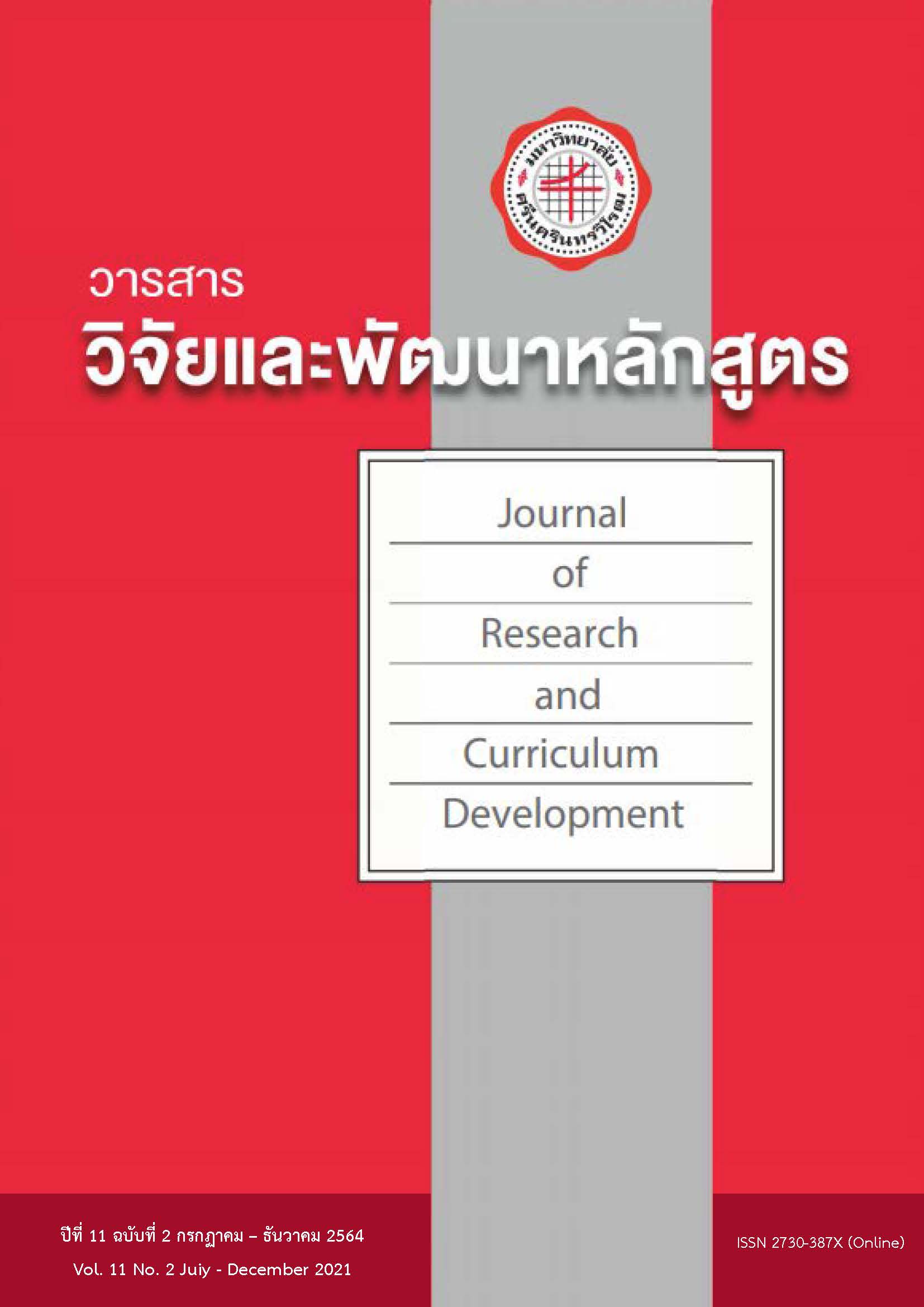Factors Affecting the Learning and Teaching Development of International Development Studies from the Perspectives of Administrators and Teachers
Keywords:
Learning and teaching; Development; International development studies; ThailandAbstract
The curriculum of international development studies was first conducted in Thailand in 2003 by the faculty of Political Science, Chulalongkorn University. Nowadays, various institutions offer teaching in the discipline of development studies, with both national and international units leading the expansion of development teaching networks in Thailand. Therefore, to promote the growth and quality of development studies, this paper aimed to 1) analyse the factors affecting teaching and learning international development studies through administrators and teachers’ perspectives, and 2) to propose suggestions for improving teaching and learning international development studies. The paper used a qualitative approach, using in-depth interview of administrators and lecturers in the field of international development studies as well as secondary data analysis. The results showed that there were three major factors affecting teaching and learning in international development studies. These are: 1) the decrease of scholarship allocations due to there being a change of development trends leading to the lower numbers of students from Southeast Asia, but increases in other continents leading to the consideration of adjusting teaching contents and strategies to serve a more diverse body of students: 2) the criteria for teaching quality by evaluating students’ publications. This leads to an adjustment in teaching and learning in order to improve the writing skills of students for international publications: and 3) online teaching technology: the application of online teaching and learning to international development studies becomes challenging. This is because the field relies greatly on fieldwork to gain hands-on experiences as well as a different level of familiarity of the users on technology and gaining the participation from students in online classrooms. Thus, recommendations include a scholarship aspect where the university should provide greater subsidies to replace the drop in external grants. For quality criteria, necessary skills trainings for improving students and curriculum should be conducted, for instance writing for international publications and academic presentation. In addition, for the technology aspect, lecturers who are not familiar with teaching online should be provided with training or IT assistance from the coordinator to facilitate teaching and learning activities. Also, in light of teaching techniques, there should be activities to engage students’ participation in online classrooms.
References
ศึกษาศาสตร์ มหาวิทยาลัยนเรศวร, 19(2), 344-355.
วิชัย วงษ์ใหญ่. (2554). การพัฒนาหลักสูตรระดับอุดมศึกษา. กรุงเทพฯ: อาร์ แอนด์ ปริ้นท์.
วิทยา วาโย และคณะ. (2563). การเรียนการสอนแบบออนไลน์ภายใต้สถานการณ์แพร่ระบาดของไวรัส
COVID-19: แนวคิดและการประยุกต์ใช้จัดการเรียนการสอน. วารสารศูนย์อนามัยที่ 9 : วารสารส่งเสริมสุขภาพและอนามัยสิ่งแวดล้อม. 14 (34), 285-298.
Brammer, S. &. Clark, T. (2020). COVID-19 and Management Education: Reflections on Challenges, Opportunities, and Potential Futures. British Journal of Management. 31(3), 453-456. DOI:10.1111/1467-8551.12425
Fardella, C., Baleriola, E., & Enciso, G. (2020). Practices and Discourse of Academic: Local Lessons to Address the Digital Shift in Academic Management. Digital Education Review. 37, 64-78.
Hussin, WNTW., Harun, J. & Shukor N. (2019). Online interaction
in social learning nvironment towards critical thinking skill: A framework. Journal of Technology and Science Education, 9(1), 4-12.
Knight, J. (2004). Internationalization Remodeled: Definition,
Approaches, and Rationales. Journal of Studies in International Education. 8(1), 5-31. DOI: 10.1177/1028315303260832
Kothari, U. (2019). A radical history of development
studies.London: Zedbooks.
Shenoy, V., Mahendher, S.,& Vijay, N. (2020). COVID 19 - Lockdown: Technology Adaptatio, Teaching, Learning, Students Engagement and Facuty Experience. Mukt Shabd Journal. 9(4), 698-702.
Spiegel, S. (2017). Decolonising Online Development Studies? Emancipatory Aspirations an Critical Reflection - a Case Study. Third World Quarterly. 38 (2), 270-290. DOI: 10.1080/01436597.2016.1256767
Williams, D. (2014). The Study of Development. In International
Development; Ideas, Experience, and Prospects. Oxford: Oxford University Press.
Zhang, W., Wang, Y., Yang, L., & Wang, C. (2020). Suspending Classes Without Stopping Learning: China's Education Emergency Management Policy in the COVID-19 Outbreak. Journal of Risk and Financial Management.13 (55), 1-6.


